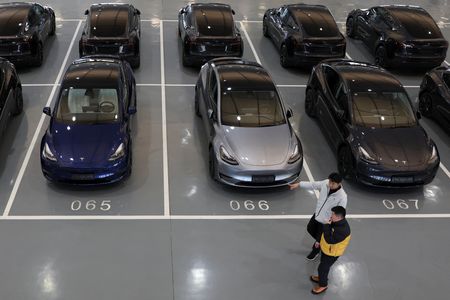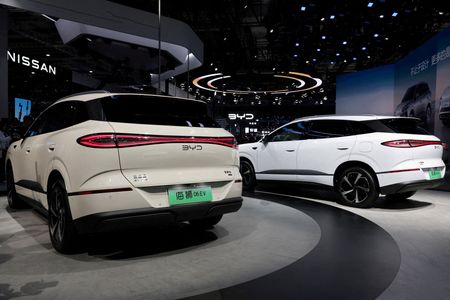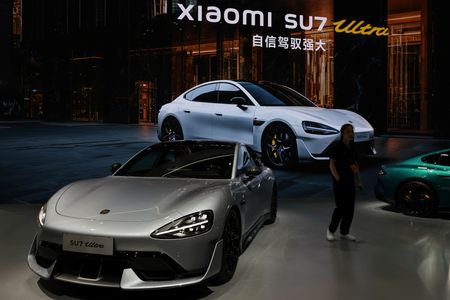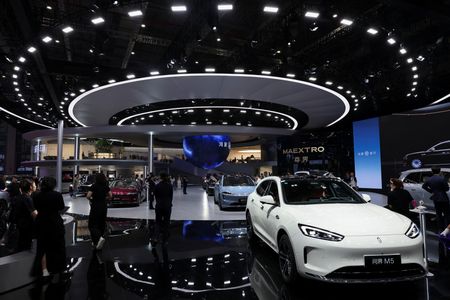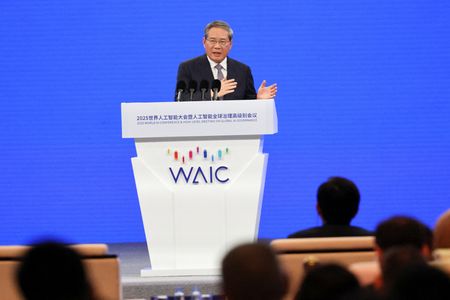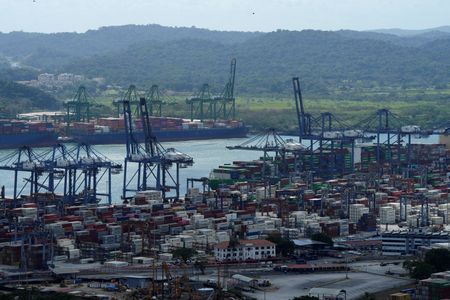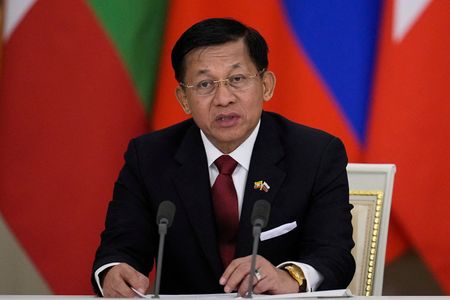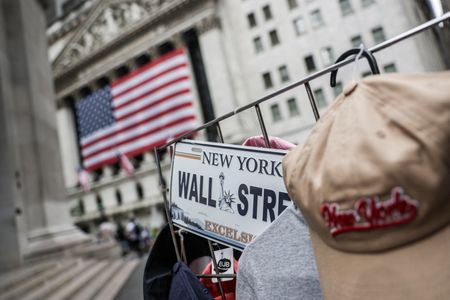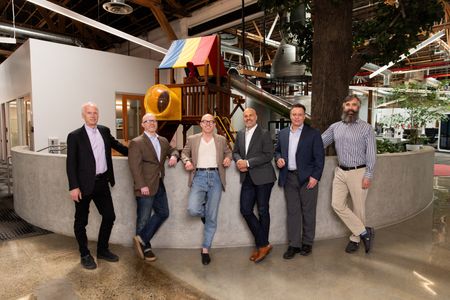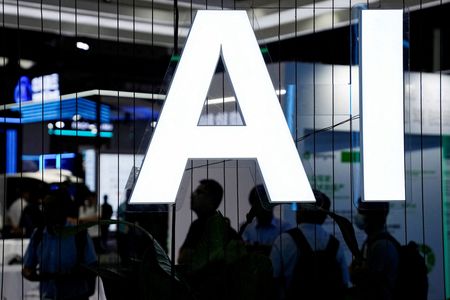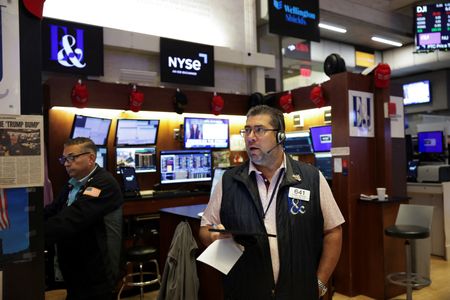BEIJING (Reuters) -Billionaire Elon Musk’s Tesla outperformed Chinese rivals including BYD, Xiaomi and Huawei in a test of assisted driving technologies on China’s highways, according to results published by TikTok owner Bytedance’s auto unit Dcar.
State television CCTV and Dcar jointly tested the level 2 advanced driving assistance systems (ADAS) from more than 20 electric vehicle brands in China and rated their performance in a series of scenarios with higher risks of accidents on highways and urban traffics.
The test videos posted by Dcar went viral on Chinese social media.
Tesla scored the best in the highway test among 36 models, with its Model 3 and Model X passing five out of six scenarios, while BYD’s Denza Z9GT and Huawei-backed Aito M9 failed in three scenarios.
Xiaomi’s SU7 passed in one of six.
In a Weibo post on Friday, HIMA, the Huawei-led auto alliance, said it declined to comment on the “so-called test.”
BYD and Xiaomi didn’t immediately respond to requests for comment.
“Due to laws against data export, Tesla achieved the top results in China despite having no local training data,” Tesla CEO Elon Musk said on his X account on Friday.
Tesla has been caught in what Musk described as a “quandary”, as the U.S. doesn’t allow its AI software to be trained in China, while the automaker has been seeking approval from Chinese regulators to transfer data saved locally in Shanghai back to the United States for algorithm training.
Domestic brands should face up to the gap with Tesla in autonomous driving, Wang Yao, deputy chief engineer of the China Association of Automobile Manufacturers, told an auto forum in Shanghai earlier this month.
Xiaomi CEO Lei Jun, in remarks after a Tesla Model Y delivered itself from an Austin, Texas factory to its owner in the area roughly 30 minutes away, said “we will continue to learn” from Tesla which has led industry trends.
The test came amid growing safety concerns in China about the ADAS after a highway accident involving a Xiaomi SU7 killed three people in March.
State media have blamed misleading promotions for resulting drivers’ improper uses of the technologies and the authorities have banned the uses of terms such as “smart driving” and “autonomous driving” for marketing driving assistance features.
The public security ministry said this week that the country will set out legal responsibilities related to the technology that has yet achieved true autonomous driving. Drivers face safety and legal risks if they are distracted in accidents when assisted driving is turned on, the ministry warned.
Xiaomi had seen a slump in new EV orders as a consumer backlash began in April following the fatal trash, but the impact seems short-lived, with its new electric SUV receiving exceptionally strong initially orders after it went on sale last month.
Tesla’s sales of its China-made electric vehicles edged up 0.8% in June from a year earlier, snapping an eight-month losing streak, but they continued to fall on a quarterly basis in the face of lower-cost new models from its Chinese rivals.
Tesla’s assisted driving suite is available in China for nearly $9,000, while the technology from its local rivals including Xiaomi and BYD is without extra cost, pressuring the U.S. automaker’s self-driving future.
Tesla’s technology approach relies solely on cameras as sensors and artificial intelligence while most Chinese peers including BYD use lidar (light detection and range sensors) additionally to ensure performance.
($1 = 7.1624 Chinese yuan renminbi)
(Reporting by Qiaoyi Li, Zhang Yan and Casey Hall; Editing by Kim Coghill)

